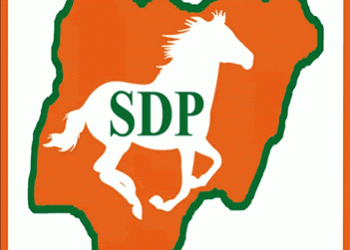The Minister of Agriculture and Rural Development, . Mohammad Mahmood Abubakar, on Friday said over 10 Million Nigerians are activity engaged in primary and secondary fisheries operations, stating it would lead to reduction of fish importation , increase local production and fast track the economic growth.
The Minister, who spoke at the closing Ceremony of the Second Dialogue and Sensitization Meeting on Fisheries Governance Project (FISHGOV 2) with Regional Economic Communities (RECs), held at Chelsea Hotel, Abuja, pointed out that the fisheries and aquaculture sub-sector was very significant to Nigerian economy in terms of employment creation, income generation, poverty alleviation, foreign exchange earnings and provision of raw materials for the animal feed industry.
He revealed that “to boost local production in order to reduce imports, Federal Government was encouraging backward integration through commercial aquaculture production for local consumption and export, which is yielding positive results’’.
The Minister added that Federal Government had introduced measures to enable the fisheries subsector gain the desired prominence which include; Establishment of vessel monitoring system (VMS) in Lagos and Abuja to monitor and control illegal, unreported and unregulated fishing along Nigeria continental shelf, Fish farm clusters to increase fish production and engage the teeming youth and women, Fish storage, processing and marketing project to increase shelf life/ keeping quality among others.
He urged the stakeholders to come up with sustainable and practicable Governance strategies for implementation in order to boost Fish production in Africa.
Earlier, the Acting Director, Africa Union-Interafican Bureau for Animal Resources (AU-IBAR), Dr. Nick Nwankpa stated that ‘’the overall objective of the meeting was to discuss ,identify and map initiatives that are relevant and complementary to fisheries and aquaculture activities , agree on framework for internal coordination on issues relating to fisheries ,aquaculture and related disciples’’.
One of the Stakeholders, the European Union Representative, Eulade Mboneye pointed out that the Fisheries Governance Project Phase 2 recognized the importance of institutional collaboration and coordination for the sustainable exploitation, management of fisheries, aquaculture and other blue economy resources.







